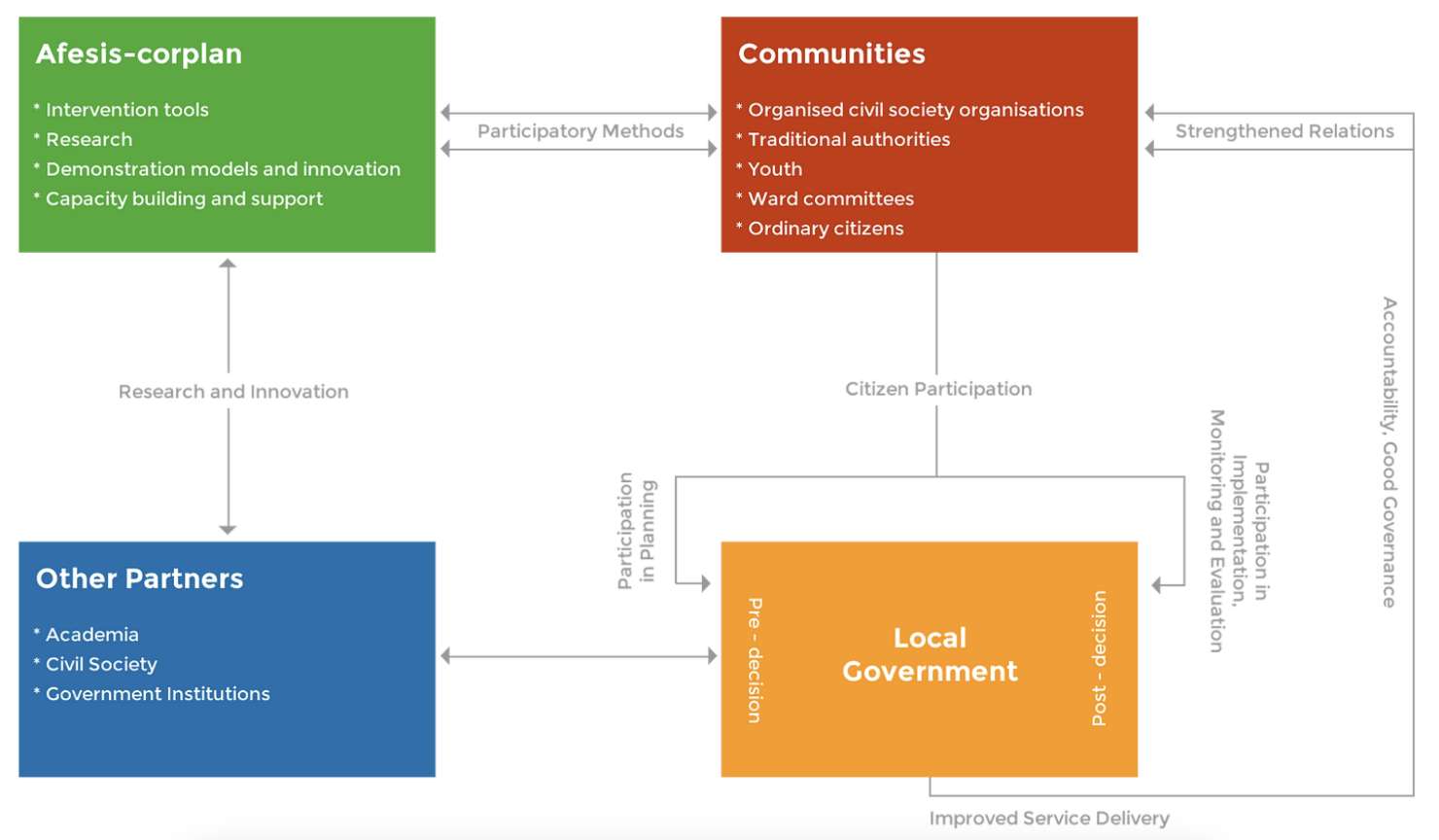Strengthening Municipal Governance
About Afesis Corplan
Afesis-corplan is a progressive, non-governmental organisation that has contributed to community-driven development and good local governance in the Eastern Cape since 1992. Registered as a not for profit Company, Afesis-corplan operates under the governance of a capable Board of Directors. Eighty percent of its staff have professional and postgraduate qualifications and ninety percent come from historically disadvantaged communities.


0
R 0 M


0 M
0
Non Governmental Organistion
Promoting active citizenship and good governance
The Organisational Positioning Summarized

Team Culture Statement
Strategic Goal
Vision, Mission & Values
Our vision is a self-reliant society in which people have equitable access to resources and institutions are an expression of people’s needs and aspirations.
Our mission is to empower communities of the Eastern Cape and beyond by promoting active citizenship and good governance through participatory methods, policy-driven research and dialogue aimed at promoting access to land for sustainable human settlements, local economic development and good governance.
Our mission and vision are based on the following values:

Equality

Democracy

Transparency and
Accountability


